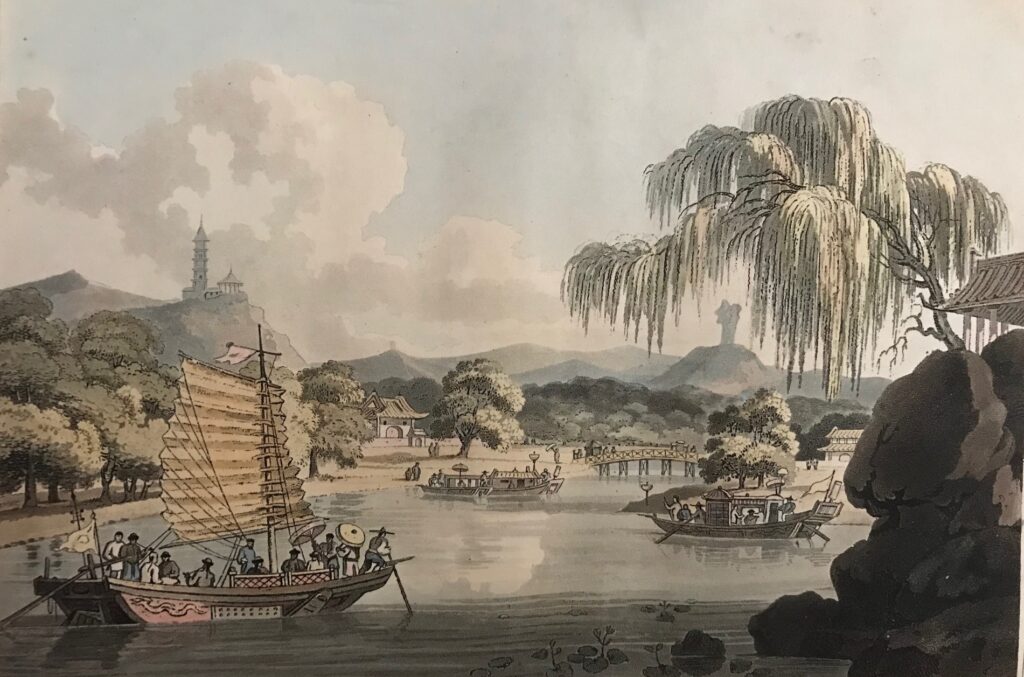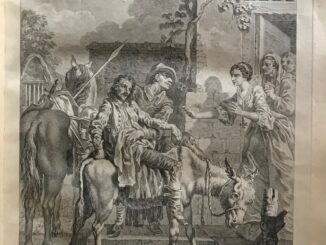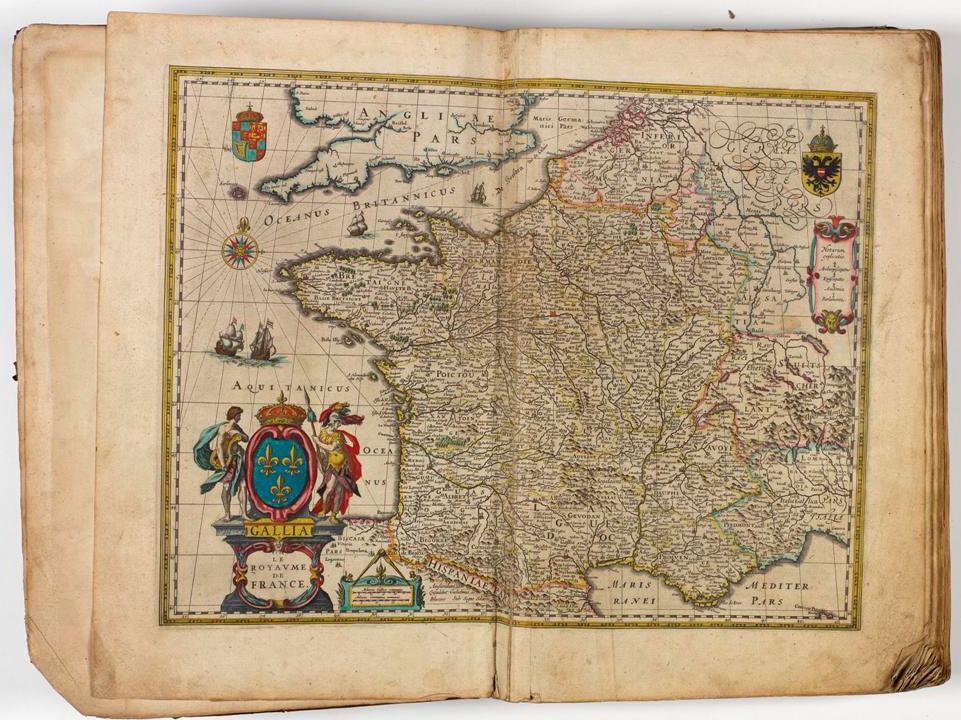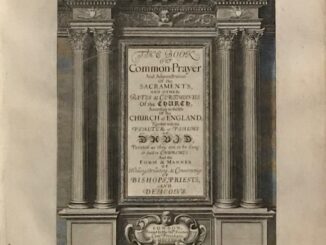Mark McKillion, Ulster University MA History graduate and volunteer for the Library in 2022, carried out research on John Barrow’s Travels in China : containing descriptions, observations, and comparisons … (1806) (object ID P001428698).
You can adopt this work for £500, and support the work of the Library, caring for our wonderful collections, and inspiring present and future generations!
Throughout the 18th century, British knowledge of the Chinese empire was relatively limited, as aside from unprecedented events such as Commander George Anson’s Voyage Round the World in 1748, scholars would have needed to rely on a few first-hand accounts by British travellers who had been to China personally.[1]
This is acknowledged by Barrow himself within the introduction of his text, as he states that historians should be made aware of ’the sentiments of an Englishman at all acquainted with the manners, customs and character of the Chinese nation,’[2] and that the British embassies should be able to set a higher standard for future expeditions to China for other future embassies throughout Europe.[3]
Frederic Wakeman Jr. describes Barrow’s mindset as part of his sense of responsibility as a historian to devise a cohesive historical narrative to achieve “an effective enchaînement and continuity of historical events,” whilst still retaining faithful attention to the sources used by the historian, as they could otherwise clash with the established historical narrative.[4]
One example of this within Travels in China can be seen in Chapter 8, where Barrow highlights that because of the potential difficulty in ensuring that the Chinese government will co-operate with who they saw as strangers, he would have to persevere in his pursuit of knowledge of this foreign land: for example, in the same chapter, he states that that during this particular stage of his journey, he and his companions were ‘quite alone, not a single Chinese servant, nor soldier, nor officer to conduct us; yet we had no difficulty in finding our way.’[5]




